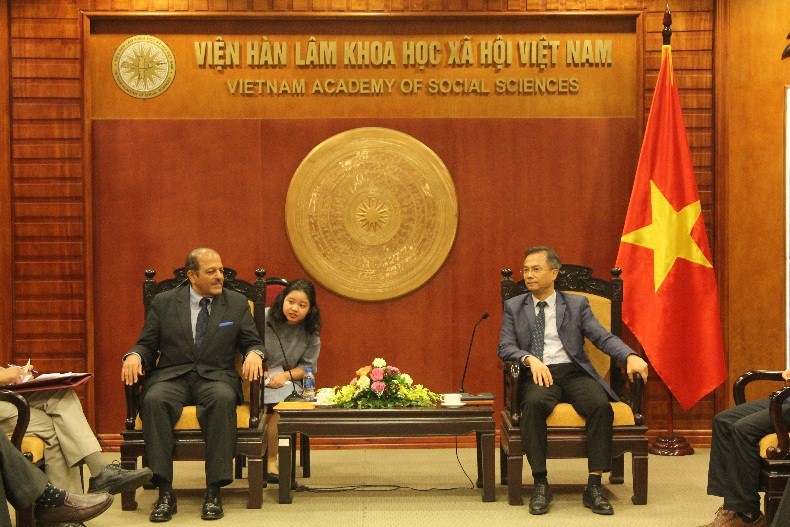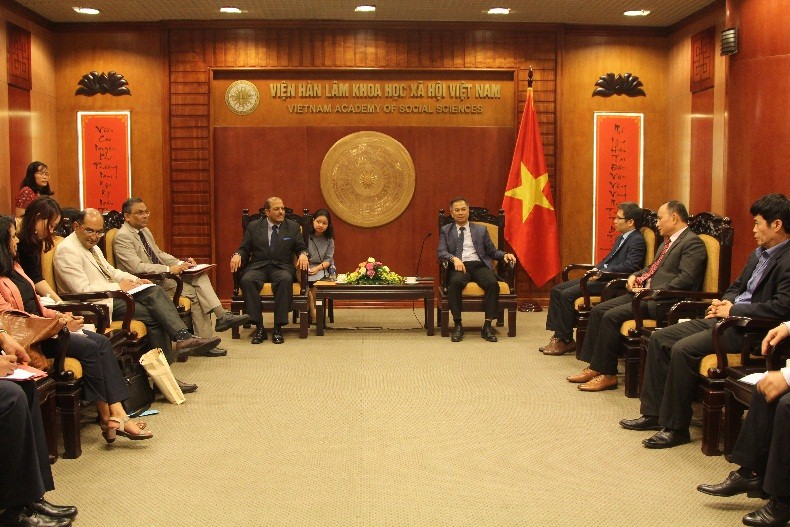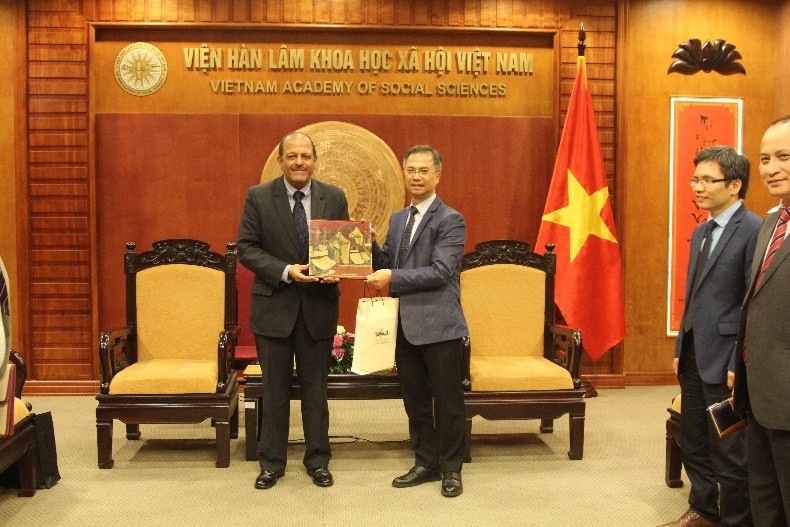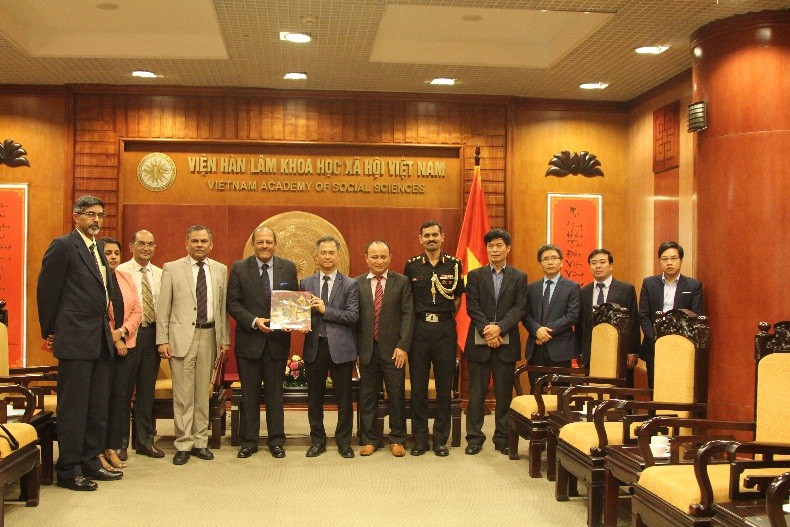Attending the meeting included, in the IDSA side, there were appearances of the Ambassador Sujan R. Chinoy, Director General; Major General Alok Deb (Retired), Deputy Director General; Admiral Abhay Kumar Singh, Specialist; Dr. Udai Bhanu Singh, Senior Research Collaborator; Dr. Pratibha, Collaborator; Colonel Farada Kumar, Defence Attache, Indian Embassy in Vietnam. In the VASS side, there was Dr. Dang Xuan Thanh, Vice President; Assoc. Prof. Dr. Nguyen Xuan Trung, Director General of the Institute for Indian and Southwest Asian Studies; Assoc. Prof. Dr. Nguyen Huy Hoang, Director of Institute for Southeast Asian Studies; Assoc.Prof.Dr. Chu Duc Dung, Director of the Institute of World Economics and Politics; Dr. Nguyen Xuan Cuong, Director of the Institute for Chinese Studies; Dr. Nghiem Tuan Hung, Head of Non-Traditional Security Issues, Institute of World Economics and Politics.
 |
 |
At the beginning of the meeting, Director General Sujan R. Chinoy expressed his pleasure to visit and work at VASS. With “Look East policy”, the Ambassador emphasized that India is very important to cooperate with Southeast Asian countries, especially Vietnam, because the two countries have a long-standing, close relationship, from the intercourse of Buddhism and Cham culture to the ideological similarity between Mahatma Gandhi and Ho Chi Minh. Nowadays, India and Vietnam have achieved many successes from strategic cooperation. The two countries have collaborated extending from defense to agriculture and improving human resources. India is very grateful for the support from the Vietnamese side in the race for the non-permanent member of the United Nations Security Council. At the same time, the General Director stated that the world situation is many fluctuations with the resistance to globalization, the rise of Nationalism making the process of globalization and economic development face many challenges. Facing that situation, India has acknowledged the surrounding areas with a broader perspective and wants to cooperate to handle these issues. India always supported compliance with laws, trade, freedom of aviation & maritime. Hence, India's view on the Indian-Pacific strategy is clear. It is creating a free, open and transparent commercial area.
 |
 |
In response to the Director General of IDSA, Vice President Dang Xuan Thanh once again emphasized that Vietnam and India have shared many common values, not only in culture and history but also on the political beliefs that have been accreted by leaders as well as the people of the two countries throughout history. Vietnam was very pleased with the achievements of India in recent times and the strategic cooperation relationship between the two countries. Vice President Dang Xuan Thanh said that the world order was taking radical steps. The process of globalization was overturned, the relationship between the two Great Powers No. 1 and No. 2 are the United States and China respectively, which were fundamentally changing; correlating forces between countries in the Asia-Pacific region also had many changes. The United States was gradually returning to protectionism and unilateralism; focusing on protection for the US and not focus on providing global public goods. Specifically, with some moves such as withdrawing from the Nuclear Agreement with Iran, the Trans-Pacific Partnership (TPP) Agreement, the Short and medium-range Nuclear Weapons Treaty With Russia, the Paris Agreement on Climate Change… These are structural changes, proving that the US has changed the "rules of the game" with globalization. Besides, China has a strong resurgence in the past decade, abandoning the way of "hiding and waiting for time". As shown, both the US and China want to change the world order. Dr. Dang Xuan Thanh affirmed that no matter want it or not, India and Vietnam must accept regional security architecture in the coming years. However, the Vice President also declared that countries in the Indian - Pacific region in general and Vietnam, India in particular need to actively take initiatives and actions soon to minimize the negative impacts brought by the world situation.
The meeting took place very openly with profound exchanges and judgments from both sides; there are both consensus and contrary, suggestive views. However, the two parties unified that it is necessary to cooperate and act together as soon as possible in the face of challenges causing by fluctuations in the world context. One meeting cannot discuss all the raised issues, so this meeting is the opening for the next working trip between VASS and IDSA in particular; further tightening the good strategic cooperation relationship between Vietnam and India in general.
Hong Nhung







